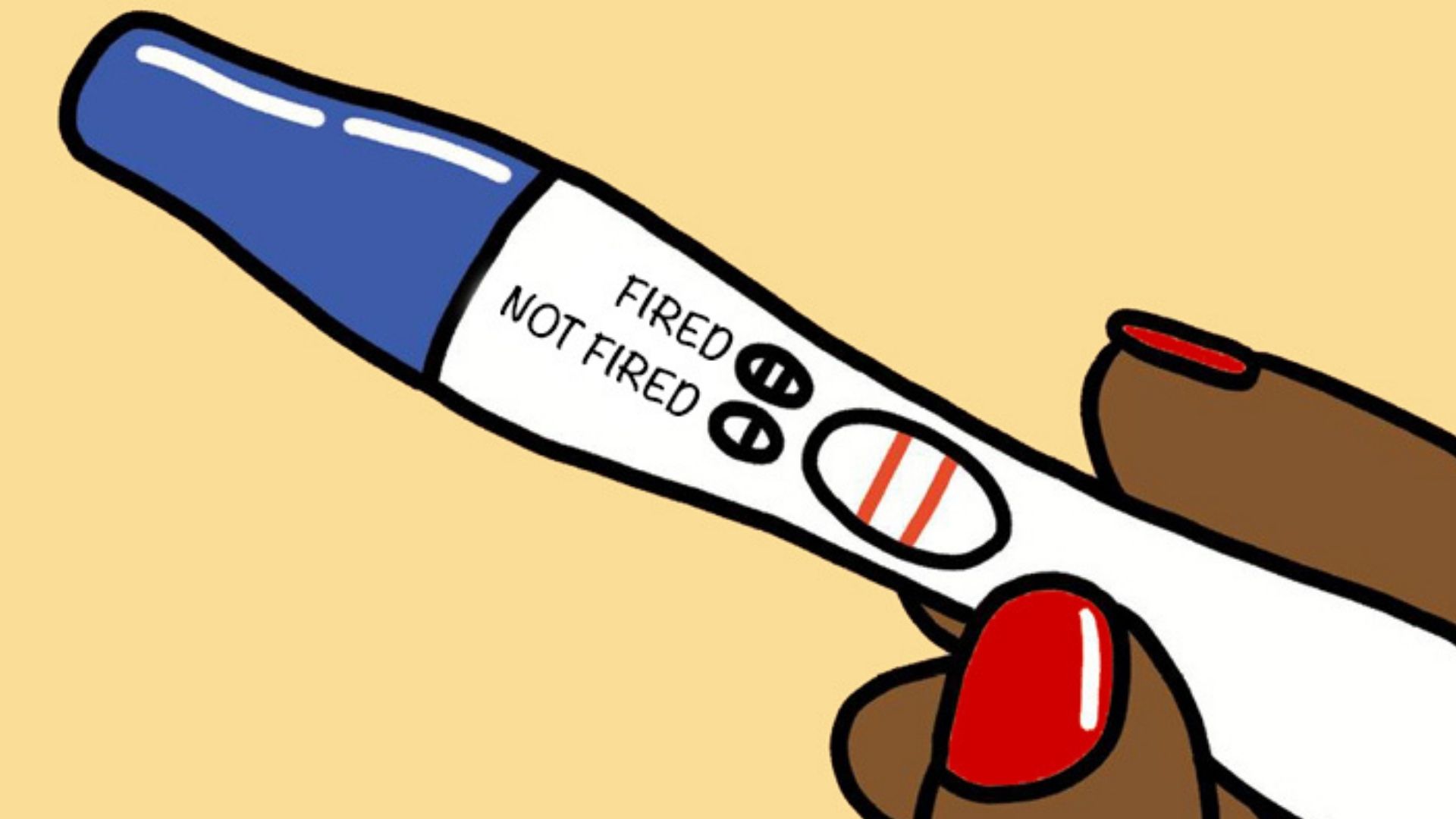Financial planner Eugenia Chew, in her late 30s, left her administrative job in 2000 for one that would allow her to better care of her elderly mother, who suffers from rheumatoid arthritis and diabetes.
“At that time, my commission was a minimum of $5,000 per month, and that was on bad days. I usually raked in between $8,000 and $10,000 per month. When I quit to take care of mum, I had substantial savings initially. But now, I am a freelancer and my average earnings are down to about $2,000 per month during the Covid-19 restriction period. Now that the restrictions are lifted, I hope to see that increase by $1,000 per month at least, but I may be too idealistic,” she says.
An only child, Ms Chew lost her father in 2001 when he died from a sudden heart attack, making her the sole caregiver of her mother.
“I hired a helper from the Philippines to look after Mum while I was at work. Then, I had a lot of flexibility, so I could work together with the helper. But when I became regional leader, that flexibility I was used to began to erode as I had to spend more and more time with the agents under my charge,” she says.
Tough decisions
Ms Chew’s bosses were initially empathetic and understanding, but when the helper resigned just after three months, and subsequent helpers, who could work with her mum, were harder to find, things changed.
She had to constantly step in to look after her mother, and her work suffered.
“My mother’s arthritis began to worsen in 2003, and she faced great difficulty eating and drinking. It also became increasingly harder for her to move around. It was difficult to find suitable helpers, so I had to spend more time at home to feed, bathe and dress her. My bosses realised that I was unable to perform my own job, or mentor my charges properly and my own targets and key performance indicators (KPIs) were not met,” she says.
Still Ms Chew soldiered on, and she knew that her clients continued wanting to work with her and her team.

But when it came to appraisal time in mid-2004, she was in for a rude awakening.
“It was a drastic departure from the high appraisals I had previously received. My team leader said that I had lost my ‘commitment’ and ‘drive’. My team leader and the HR manager said, in view of my mother’s prolonged poor health, perhaps I should work in a part-time role or find a ‘job that would better fit my changed work situation’.”
In September 2005, Ms Chew requested for a part-time position and took a drastic pay cut, and when Covid-19 hit, she was retrenched. Ms Chew now supports herself and her mother through a variety of freelance jobs.
Ms Chew is not an exception.
In a 2018 study on the financial impact of eldercare on family caregivers by the Association of Women for Action and Research (AWARE), 63 per cent of the 22 caregivers interviewed experienced a negative change in employment status and income because of caregiving.
To cope with caregiving, they either switched from full-time to part-time work, stopped work entirely, or cut back on the number of projects if they are self-employed. As a result, these 13 caregivers suffered a 63 per cent loss in income on average.
This translated into an average loss of $582,572 over four years or an average annual loss of $56,877.
The sacrifices that women make for caregiving and domestic work are evident in national statistics. This is due to outdated beliefs about gender roles that are still held by a majority of the population in Singapore. According to a national survey conducted by Blackbox in 2020, more than 6 in 10 respondents agreed that women are better suited for caregiving roles than men.
Economic consequences of family caregiving
In 2020, women formed more than 3 in 5 of those outside the labour force. Housework was cited as the most common reason for these women being outside the labour force, with 21.5 per cent of 689,400 women citing it as the main reason. Caregiving also affects women’s ability to return to the labour market.
On a national level, those providing caregiving to families or relatives, excluding childcare, have been out of work for a median time period of nine years and 75 percent of such caregivers are aged 50 and above. Their ability to re-enter the job market after not being employed for close to a decade tends to be limiting as job conditions would have changed significantly during that time. Their skills may also have become obsolete.
In his Budget speech of 2019, then Finance Minister Heng Swee Keat acknowledged the economic impact of caregiving on women when he announced that the 300,000 Singaporeans, aged 50 to 64 in 2019, to benefit from the CPF top-up of up to S$1,000 were mostly women, many of whom “left the workforce early and took up important roles as mothers, caregivers or housewives.”
That same year, the Government announced a monthly Home Caregiving Grant (HCG) of $200 to replace the monthly Foreign Domestic Work Grant of S$120, allowing care recipients to choose their preferred care options. One of these options is paying family caregivers, who more often than not are wives or unmarried daughters.
In the White Paper on Singapore Women’s Development released on 28 March, the Government proposed doubling the HCG to S$400 for lower-income households. Parliamentary Secretary for Health Rahayu Mahzam said then that more than 31,000 individuals have benefited since 2019.
While HCG is a crucial first step, countries such as Australia and Ireland, offer comprehensive caregiver payments, allowances, and supplements, showing that Singapore is still way behind the curve.
Ms Hingorani said while the emotional and physical burdens of family caregiving are well documented, its economic consequences have not received as much attention from policymakers. These include loss of income and retirement savings, out-of-pocket expenditure of co-payments for formal services to complement family care, and additional expenses in care-related goods and services.
Also, there is the cost of hiring foreign domestic help. On average, caregivers spent $655 a month per FDW for the maid and with the HCG payout, it would bring the cost down but not substantially.
Pregnancy liability
But at least Ms Chew’s bosses were more sympathetic than those of Ms Sylvia Carlson, who, with her husband had been trying for a child since their marriage in 2016.
After several miscarriages, the former teacher with an international school here was overjoyed when she found that she was finally pregnant in late 2018. Ms Carlson had taught in the international school since 2015 and she was a popular teacher who excelled in teaching History to her teenage students.
‘’My classes had among the highest pass rates in the school, and this motivated me to give my best in my teaching. When I was pregnant, I was so happy and so were the students,’’ she says.

After the birth of her son in early 2019, Ms Carlson took her customary maternity leave and was back to work later that year. ‘’My colleagues and co-teachers had to cover much of my work during my maternity leave, and my return coincided with the major exams. They felt some stress in having to cover my curriculum during my absence, but I did all I could to brief my colleagues on the subjects to be covered. She had taught these subjects before, so she was not entirely clueless,’’ Ms Carlson says.
When the results were out, Ms Carlson’s class showed a drop of about 5 percent in their performance, and while Ms Carlson did not think it was a serious matter, the school thought otherwise.
“A month after the exam results, my principal and one of the vice-principals called me in for a discussion about my performance. Instead of welcoming me back to school, the principal chided me for taking the full four months of maternity leave,” she says.
“He said that my co-teacher and colleagues had found it stressful covering my duties in addition to their own. He added that I had had a healthy pregnancy and birth, so I could have returned to school earlier. The vice-principal also implied that the exam results could have improved had I returned to school earlier. I felt that I was being punished for taking my maternity leave entitlement and I was shocked at how I was being attacked,” Ms Carlson adds.
Her colleague was equally surprised and shocked when told of what transpired. “She said that the maternity leave was my entitlement and she had had no problems teaching my class during my absence and informed me that the exams that year were more difficult as different teaching methods and assessments were introduced,” she says.
Ms Carlson was not surprised when she got a ‘poor’ appraisal report that year and even considered quitting but later decided against it.
”My husband said I did not need to work for such inconsiderate employers, and he could support our family. I knew that he was right, but in the end, I decided to stay on as I love my job,” she says.
Discriminatory practices
Ms Carlson could have reported her unfair treatment to the Education Ministry as pregnancy and maternity discrimination are hardly isolated.
Just in January this year, a pregnant woman accused a tuition centre in Tiong Bahru of discrimination after she was fired three days into the job. She had poured her grievances on Facebook and even made a Police report.
According to the Association of Women for Action and Research (AWARE), pregnancy discrimination can include the employer refusing to hire a pregnant applicant, subjecting her to demotion or unfavourable transfer, dismissing an employee during pregnancy or upon return from maternity leave without justifiable causes and even implementing unfavourable changes in her working hours, roles, duties and performance targets without justifiable causes.
There have been numerous reports of women who have been terminated from their work without satisfactory explanations after they revealed that they were pregnant.
In a commentary written in May 2020 for CNA, Head of Advocacy and Research at AWARE Hailey Hingorani said 70 per cent of the 27 workplace discrimination cases seen by AWARE’s Workplace Harassment and Discrimination Advisory (WHDA) since its launch in September 2019 relate to pregnancy discrimination.
“We have heard horror stories of employers who try to get their pregnant employees to leave the company, ostensibly in anticipation of them receiving maternity leave or becoming poor performers once they have a child,” she said.
These deep-seated prejudices are problematic where they “reduce mothers to stereotypes to justify discrimination”. Studies show that compared to other workers, mothers are viewed as less competent and committed to their work, regardless of actual performance.
Their productivity is suddenly questioned, even when up until a month before their pregnancy, they received pay raises and contract extensions and returning mothers also face grossly inconsiderate acts such as carefully refrigerated breast milk being thrown out.
On 29 July 2021, a paper by the People’s Action Party’s (PAP) Women’s Wing and Youth Wing called for workplace anti-discrimination laws and full flexibility for couples to share parental leave.
MP for the Jurong GRC Rahayu Mahzam says: “Women still face discrimination at their workplaces. They say they are passed over for promotions or not given opportunities because they are thought to be not able to perform because they have to take care of their kids once they get married and get pregnant.”
The paper recommends scaling up movements such as SG Women in Tech to encourage girls and young women to enter and progress in growth sectors.
A spokesman for the Human Resources (HR) department of the National University of Singapore (NUS) says that it does not rescind its offer of employment when the hire is pregnant.
“However, if the position needs to be immediately filled, or there is only a short waiting period, we tell the hire of the risks involved in light of her pregnancy. We also recommend that she check with her doctor about her condition before making any decision. If she decides to reject the offer after our explanations, we respect her decision,” she says.
Ms Sabina Lo, an HR spokesman for Capgemini, said that victims of pregnancy discrimination have avenues of redress through the Tripartite Alliance for Fair and Progressive Employment Practices (TAFEP).
“The establishment of TAFEP, and the readiness of Singaporeans and Singapore employees, to seek redress through it, show that people are not willing to suffer in silence anymore, quite a different scene from the past when victims of such discrimination had to face the situation or leave,” she says.
But Ms Hingorani, in her commentary, said a successful mediation can result in reinstatement or compensation in lieu of maternity benefits or lost wages. “Reinstatement is an unattractive option. Employees hardly want to go back to an employer who has disrespected them and questioned their worth as a worker,” she added.
Join the conversations on TheHomeGround Asia’s Facebook and Instagram, and get the latest updates via Telegram.




























